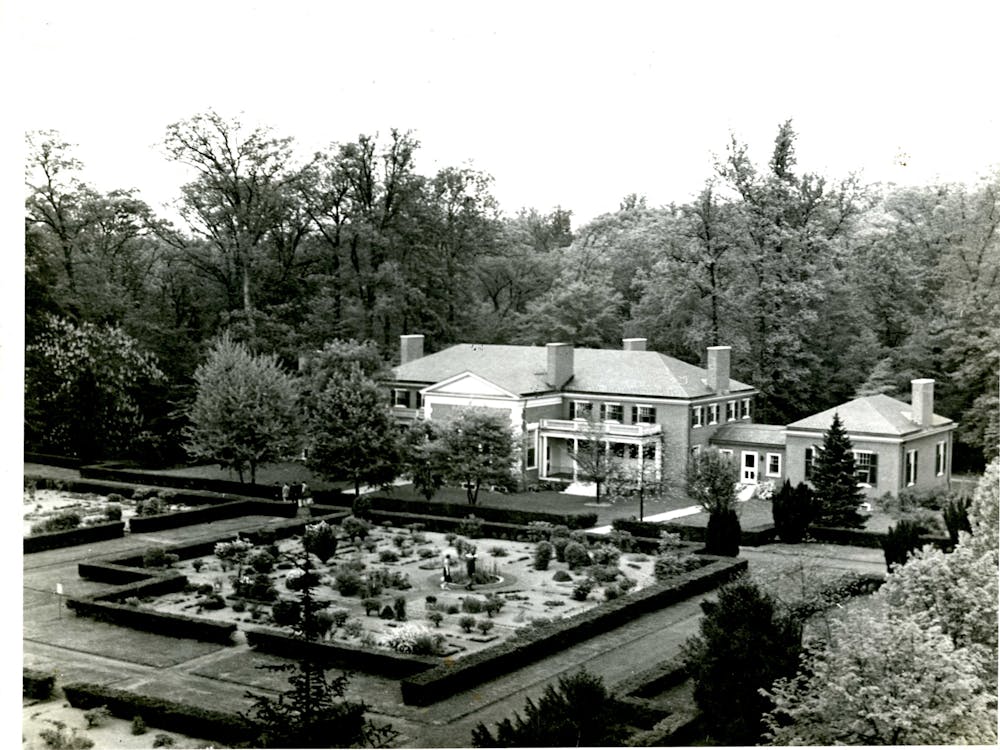Should guns be allowed on college campuses? This question has sparked a debate not only at Hopkins, but across the nation.
In response, University President Ronald J. Daniels argued in a Washington Post op-ed, co-authored with Bloomberg School of Public Health Professor Daniel Webster, that civilians, especially students, should not bring guns on campus.
In August, Texas became the eighth state to adopt a “campus carry law,” which permits civilians to carry firearms on public university grounds.
Dr. Peter Beilenson, a lecturer at Hopkins and former Baltimore City Health Commissioner, identified the critical role of empirical research on gun control.
“Legislators tend to be very polarized, but to potentially sway some of the middle of the population, it may make a difference if you can get the information out,” he said.
Beilenson also warned that major news networks like Fox News and MSNBC have polarized the debate, leaving little room for compromise.
Daniels and Webster claimed that their use of empirical evidence from a public health perspective supports their argument.
“We oppose guns on campus not in the hackneyed stereotype of liberals scolding from the ivory tower but as a result of a searching examination of relevant research as well as a common-sense assessment of reality,” they wrote.
Both sides are primarily concerned about the safety of students on campus, but have radically different solutions.
The University of Texas at Austin (UT Austin) will be directly affected by Texas’s new law allowing civilians to carry firearms on campus. The university has a history of gun violence. In 1966, a student killed 18 people on UT Austin’s campus.
Worried about the safety of their campus community, many students there have been protesting the new legislation.
Carissa Davis, a freshman at UT Austin, spoke about her perspective on gun regulations and how it will affect her time on campus.
“I don’t think carrying guns on campus is appropriate,” she said. “I think it is incredibly unsafe, and we should be taking more actions to prevent gun violence, rather than making it easier to have guns on campus.”
Davis recognized the need to have an open and understanding conversation.
“A lot of people who are conservative like to cite the second amendment, which grants the right to bear arms, but that was created a long time ago and a lot of things have changed since then,” she said. “There is a place where it’s more okay to have guns, and a university is not the place.”
Hopkins sophomore Stephanie Klaskin agrees that a balanced approach is crucial to reaching a middle ground on the issue.
“I understand why these states allow concealed firearms on campus, but I also understand why people are opposed to it,” she wrote in an email to The News-Letter. “I personally believe that, in an ideal world, the possession of a lethal weapon by a campus safety officer who is professionally trained and reliable should be enough protection in an emergency.”
Those who are against gun control often argue that if a situation like the shooting at UT Austin were to occur again, students and faculty should be able to defend themselves. Klaskin elaborated upon her own feelings regarding this argument.
“I know that I would be uneasy if the kid next to me in a lecture had a gun on him,” she wrote. “But I also understand that, if a shooter walked into our lecture hall, I wouldn’t feel so uneasy next to the kid with a weapon.”
Freshman Sumera Yego expressed a contrasting perspective.
“Effective policies or programs on how to react to that incident would be more effective than relying on the slim chance that somebody in that class has a gun and has enough control over themselves in that really stressful moment to defend themselves and other students,” Yego said.
She acknowledges that there is concern about violent crime on campuses but does not believe that arming students is the answer.
“It’s vital that campuses take those security threats into consideration,” she said. “But the answer is not to allow students to arm themselves with guns. The answer would just be increased surveillance, making sure that students who are going through tough times have the resources to reach out so that they don’t end up taking violent means to quell their own feelings.”
Those who oppose guns on campuses often say that adding guns to the college environment is dangerous because of other factors, including mental health concerns and alcohol.
“Mental health issues are a problem in universities,” Yego said. “That can be scary because students who have those issues could cause real security threats if they have access to guns and they’re legally allowed to have them on campus.”
Beilenson elaborated on these concerns, which are specific to the college environment.
“This is the worst population that you want to have access to a gun that I can think of,” he said. “Young adults may have alcohol. College campuses are not unknown for having drinking parties. They may be depressed, more likely at that age to commit suicide than anyone, other than very old people. It’s just begging for a problem.”
Klaskin identified how she thinks the issue should be approached going forward.
“I think it’s important to consider previous events where people who have had guns on campuses killed others and figure out together what could have stopped them — taking a problem-solving approach,” she wrote.
Beilenson explained how people with differing views can engage the issue more constructively, but politics make passing legislation difficult.
“Two people with opposing views can agree on sensible laws like making it impossible to sell at a gun show without background checks, limiting the number of guns you can buy at one time,” he said. “In talking one-on-one, you can come to conclusions, but, the problem is, when you get to the political process and there are so many quick points to make on both sides, it makes it much harder to get something passed in a bipartisan way.”
He further stressed the effect current political polarization has on achieving stricter gun regulations.
“The only way this is going to happen is if you can get the majority of the state legislature to have stricter gun laws. It’s not going to be something that we can come to in a bipartisan manner,” he said.
But Klaskin highlighted the importance of open communication and how it can help both sides understand one another.
“Both sides need to be able to understand why the other feels a certain way and need to look for the pros in their viewpoint instead of just the cons,” Klaskin wrote. “I think this will lead to a constructive path going forward, if both sides listened respectfully to one another with the goal of combining the pros of both sides.”























Please note All comments are eligible for publication in The News-Letter.